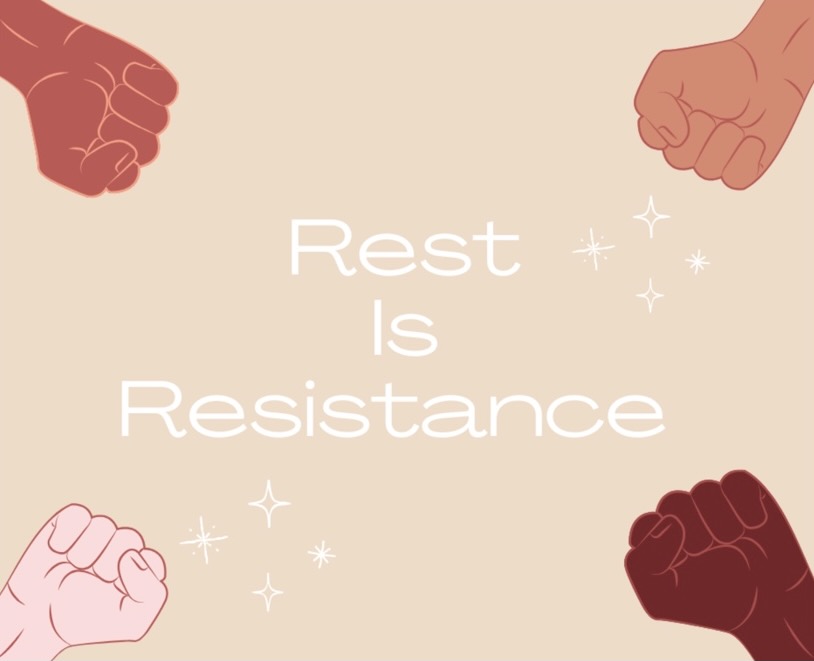There is no way to sugarcoat that we are living in confusing, scary unprecedented circumstances. What was supposed to be a celebration of potentially the first woman of color president and a glimmer of hope for a brighter future has been crushed and replaced with despair and weariness for the next four years. It is hard to maintain an optimistic outlook when LGBTQ+, POC and women’s rights hang in the balance.
As ballots finish up being counted and election discourse continues to circulate across social media, there is only one question looming on most people’s mind:
How do we carry on?
While there is no simple answer, here are a few ideas on what you can do from now until January and even beyond:
- Prioritize your mental health
It is important to reach out for help from a mental health professional if you need it. Dr. Michele Nealon, a clinical psychologist, told CBS news: “It’s normal to feel disheartened or worried, especially if you’re anxious about personal or family well-being, but if these feelings continue to interfere with your sleep, focus or energy, professional guidance can help.” On Tuesday, the Trevor Project, an LGBTQ+ youth-focused mental health organization saw a nearly 200% increase in conversation topics related to the election across its crisis services in the days leading up to the results, according to CBS news.
It is also important to practice mindfulness every day. Build a self-care routine for yourself, whether that includes making room for your hobbies and interests or getting plenty of physical exercise. It could even be as simple as getting enough sleep. According to the American Psychological Association (APA), most people tend to be creatures of habit, meaning that when things go exactly how we planned, we tend to feel in control. “But when life throws a curveball, it can leave you feeling stressed and anxious. Focus on the things that are within your control, even if it is as simple as weekly meal planning or laying out your clothes the night before a stressful day. Establish routines to give your days and weeks some comforting structure.”
- Stay off social media
Another way to prioritize your mental health is to limit your screen time. It is tempting to want to refresh your TikTok, Instagram and X feed to keep up with the latest updates. But it is easy to get sucked into a rabbit hole of misinformation. An overload of news consumption can leave you feeling overwhelmed, especially when the line between fake and credible news gets increasingly blurred. Even if it is as little as thirty minutes a day, put the phone down and unplug for a little while. The APA advises anyone feeling distraught over the news to turn off smartphone news notifications. Additionally, set the phone’s timer for 15 minutes at the start of checking social media to limit the amount of time engaged in it and try not to use it during mealtimes.
Using grounding techniques such as journaling, yoga and meditation can help you process your emotions and offer a relief from stress.
- Know your rights and get organized
It is valid to feel angry. It is valid to feel hurt, betrayed by a country that promised to be free for all people all while stripping away rights at the same time. Amidst all this, the most effective way to combat hatred is your voice. While college university officials have legal obligations to combat discrimination and a responsibility to maintain order, they cannot use this authority to curtail free speech rights on campus or shut down a protest just because an official does not like what you are saying, according to American Civil Liberties Union NorCal. Additionally, the ACLU says, “Speech that constitutes obscenity, defamation, or harassment is unprotected. When speech is divisive or hateful—but still protected and therefore not punishable—a school can consider meeting its Title VI and Title IX obligations by using its own voice to speak out, educate, and support all those in the community.”
History has made one thing clear. We have to fight for our rights. Get organized. Join a club. Organize a protest. Hang some flyers. The communities and identities that you represent may not be a target, but they’ll be next. If your activism is limited to social media, it’s time to go grassroots.
Obviously, all of this is easier said than done. It is important to have a supportive circle around us and reach out to those who need it. Even if Gen Z voters did not exactly show up and show out as we had hoped, we are not a generation that gives up easily.
For now, the only way to move forward is to take a deep breath and take it one day at a time. Rest is resistance.



































